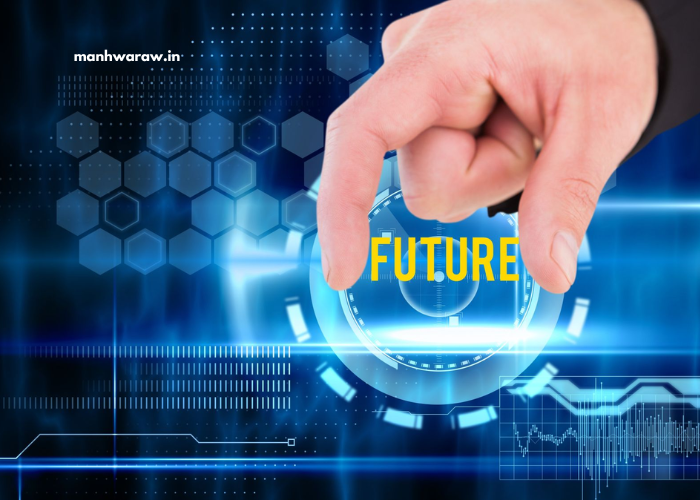The rapid pace of technological advancements in recent years has brought about a seismic shift in the way industries operate. From healthcare to manufacturing, education to logistics, emerging technologies are redefining how businesses innovate, interact with customers, and streamline operations. The future of industries hinges on their ability to embrace and integrate these technologies to stay competitive, drive growth, and meet evolving consumer demands. In this article, we will explore the emerging technologies that are shaping the future of industries across the globe.
The Rise of Artificial Intelligence (AI) and Machine Learning (ML)
Revolutionizing Decision-Making and Automation
Artificial intelligence (AI) and machine learning (ML) are perhaps the most transformative technologies shaping the future of industries. AI refers to the development of intelligent machines that can mimic human behavior, while ML, a subset of AI, allows systems to learn from data and improve over time. Together, they are revolutionizing decision-making, automation, and personalization in various sectors.
In industries like finance, AI algorithms are now capable of analyzing vast amounts of financial data to predict market trends, detect fraud, and make investment decisions. The healthcare sector has benefited from AI-powered diagnostic tools that analyze medical images and patient data, leading to faster and more accurate diagnoses. Moreover, AI is enhancing customer service in industries like retail, where chatbots and virtual assistants can provide 24/7 support, improving the overall customer experience.
Automation and Robotics
Automation, powered by AI and robotics, is streamlining production processes in industries like manufacturing and logistics. In factories, robots are now performing tasks such as assembly, quality control, and packaging. This not only reduces human error but also increases efficiency and reduces operational costs. Similarly, logistics companies are adopting AI-driven systems to optimize supply chain management, predict demand, and improve delivery accuracy.
Blockchain Technology
Transforming Data Security and Transparency
Blockchain technology, originally developed for cryptocurrency transactions, has gained immense popularity in various industries due to its ability to enhance data security, transparency, and traceability. By creating a decentralized, immutable ledger, blockchain eliminates the need for intermediaries and ensures that data cannot be altered once recorded.
In industries like finance, blockchain is streamlining payment systems, making cross-border transactions faster, more secure, and less expensive. The supply chain industry is also benefiting from blockchain’s transparency, allowing companies to trace the origin and journey of products from source to consumer. This is particularly important in industries like food safety and pharmaceuticals, where ensuring the integrity of products is crucial.
Blockchain in Healthcare
Blockchain is also making a significant impact on healthcare, where patient data privacy and security are paramount. By utilizing blockchain, healthcare providers can ensure that patient records are securely stored and shared across multiple platforms, reducing the risk of data breaches. Furthermore, blockchain can streamline processes like medical billing, insurance claims, and drug traceability, all of which help reduce fraud and improve overall operational efficiency.
Internet of Things (IoT)
Connecting the Physical and Digital Worlds
The Internet of Things (IoT) is transforming industries by connecting everyday objects to the internet, enabling them to collect and exchange data. This interconnected network of devices is revolutionizing sectors like manufacturing, agriculture, and healthcare by improving efficiency, reducing costs, and enhancing decision-making.
In manufacturing, IoT sensors are embedded in machines to monitor their performance, predict maintenance needs, and minimize downtime. This concept, known as predictive maintenance, is saving industries millions by preventing equipment failure and optimizing resource utilization. In agriculture, IoT devices are helping farmers monitor soil conditions, track weather patterns, and optimize irrigation systems, leading to better crop yields and sustainable farming practices.
Smart Cities and IoT
IoT is also playing a crucial role in the development of smart cities, where sensors and devices are integrated into infrastructure to improve urban living. IoT solutions are enabling real-time traffic monitoring, waste management optimization, and energy efficiency improvements, contributing to more sustainable and livable cities.
5G Technology
Unlocking the Full Potential of IoT and AI
The deployment of 5G networks is a game-changer for industries that rely on fast, reliable internet connectivity. With speeds up to 100 times faster than 4G, 5G enables real-time data transmission and enhances the performance of IoT devices, AI algorithms, and cloud-based applications. This is particularly important for industries like healthcare, autonomous vehicles, and manufacturing, where high-speed, low-latency communication is critical.
In healthcare, 5G can support telemedicine, allowing doctors to remotely monitor patients in real-time and perform virtual consultations. In the automotive sector, 5G is expected to be the backbone of autonomous vehicles, providing the fast and reliable communication necessary for vehicles to make split-second decisions. Similarly, manufacturers are leveraging 5G to implement smart factories, where machines and robots communicate seamlessly, improving efficiency and reducing downtime.
5G and Autonomous Vehicles
Autonomous vehicles, which are set to transform transportation, will rely heavily on 5G for communication between vehicles and infrastructure. With 5G’s low latency, autonomous vehicles can exchange information in real-time, enhancing safety and navigation. As 5G networks continue to roll out globally, the widespread adoption of autonomous vehicles is expected to become a reality sooner than anticipated.
Augmented Reality (AR) and Virtual Reality (VR)
Revolutionizing Customer Experience and Training
Augmented Reality (AR) and Virtual Reality (VR) are reshaping industries by offering immersive experiences that enhance both customer engagement and employee training. AR overlays digital information onto the physical world, while VR creates entirely virtual environments for users to interact with.
In retail, AR is being used to enhance the shopping experience, allowing customers to try on clothes virtually, visualize furniture in their homes, or receive product information through their smartphones. In the entertainment industry, VR is creating fully immersive experiences in gaming, theme parks, and movies, providing consumers with novel ways to engage with content.
AR and VR in Training and Education
In industries like healthcare and manufacturing, AR and VR are revolutionizing training programs. Surgeons can use VR to simulate complex procedures and practice in a risk-free environment, while factory workers can train using AR to receive real-time instructions and guidance during assembly tasks. These technologies not only improve the learning experience but also increase the effectiveness and safety of training programs.
Quantum Computing
Solving Complex Problems in Seconds
Quantum computing is poised to revolutionize industries by solving complex problems that are beyond the capabilities of classical computers. Quantum computers leverage the principles of quantum mechanics to perform calculations at an exponentially faster rate, which can be a game-changer for fields such as pharmaceuticals, finance, and logistics.
In pharmaceuticals, quantum computing can speed up the process of drug discovery by simulating molecular interactions more accurately than traditional computers. In finance, it can be used to optimize investment portfolios, predict market fluctuations, and improve risk management strategies. Additionally, quantum computing can revolutionize supply chain logistics by optimizing routes, inventory management, and demand forecasting.
The Future of Quantum Computing in Industry
Although quantum computing is still in its infancy, its potential to disrupt industries is immense. As research and development in this field continue, industries will begin to harness its capabilities to tackle challenges that were previously thought to be unsolvable, leading to breakthrough innovations across the board.
Conclusion: Embracing Emerging Technologies for a Competitive Edge
As industries continue to evolve, emerging technologies such as AI, blockchain, IoT, 5G, AR/VR, and quantum computing are playing a pivotal role in shaping their future. The key to success lies in adopting these technologies to drive efficiency, improve customer experiences, and foster innovation. Companies that fail to embrace these advancements risk falling behind their competitors and missing out on the opportunities they bring.
To stay competitive in the digital age, businesses must stay informed about the latest trends, invest in research and development, and adapt to the ever-changing technological landscape. The future of industries is undoubtedly intertwined with the innovations that these emerging technologies bring, and those that successfully integrate them will lead the charge into a new era of growth and transformation.
By understanding and implementing these technologies today, industries can position themselves for success tomorrow, creating a more efficient, sustainable, and interconnected world.





